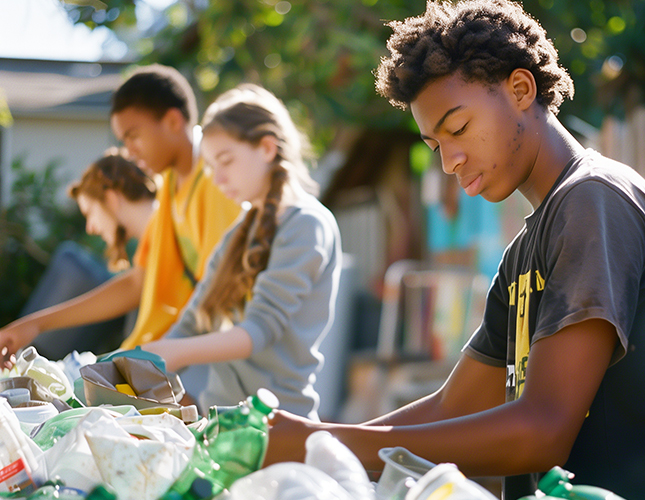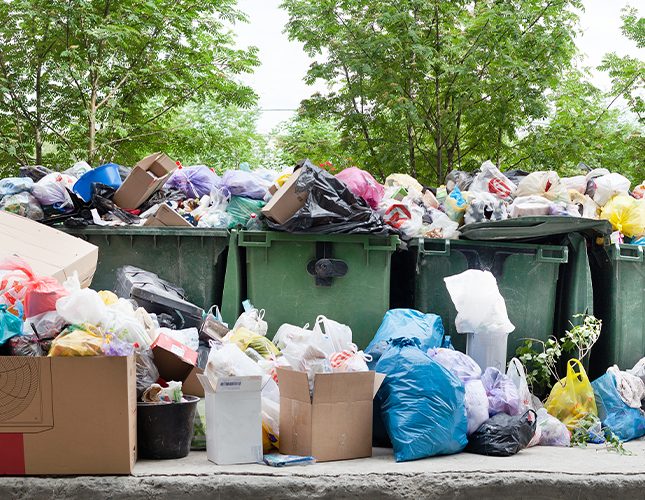Zero waste is an approach to minimize waste generation
This includes unnecessary packaging and disposable products that use more energy and resources than our planet can produce.
If a major part of the zero waste strategy consists in improving recycling integration, the approach is mainly to review how resources are consumed in order to produce less waste at the source, because the best waste is the waste that is not produced.
Birth of the movement
The term “zero waste” and its first definition first appeared in November 2004 during the Planning Group of the Zero Waste International Alliance (ZWIA).
Since 2010, the movement has really become democratized thanks to many books published on the subject. Among them, the emblematic figure of zero waste, author and blogger Béa Johnson. She made this practice known by publishing the book Zero Waste Home, which became a best-seller and was translated into more than 40 languages. The author tells how she and her family managed to reduce their waste to less than one kilogram per year (compared to an average of 700 kilograms for a Quebecer).
The original definition of “zero waste” was subsequently revised by the ZWIA Board in December 2018 to align with the guiding principles of zero waste global strategy.
“Zero Waste: The conservation of all resources by means of responsible production, consumption, reuse, and recovery of products, packaging, and materials without burning and with no discharges to land, water, or air that threaten the environment or human health.”
The 5 R strategy
The zero waste approach offers an alternative to waste management consisting in systematically using new resources to replace those lost (buried or incinerated). This strategy also aims to drastically reduce the pollution generated by conventional waste management processes; it is based on the principles of 5 R:
- Refuse: what you don’t need / single-use items / non-reusable items.
- Reduce: do not over-consume / over-pack.
- Reuse: reuse items / lease, borrow, secondhand items, etc…
- Recycle: recycle reusable objects and materials.
- Rot: rot the rest and give it back to the earth.

Zero waste in Quebec
Since 2015, the movement has grown in popularity in Quebec, citizens have gathered and created associations such as the Association québécoise Zéro Déchet (AQZD), to raise awareness about waste reduction, decrease consummation, etc.
Large grocery chains such as Metro and IGA are also beginning to follow the movement by banning plastic grocery bags and accepting reusable consumer containers.
The individual approach of zero waste is taking on a collective dimension. The industrial, commercial and institutional (ICI) sector must also adapt to this movement and to the fact that advanced regulations on waste prevention are increasing.
What zero waste solutions for the ICI sector?
While the primary goal of the zero waste strategy is to produce less waste, it also encourages an innovative design of the resource life cycle, so that all products can be reused or recycled and no waste is sent to landfill.
The overall strategy of zero waste can therefore be summarized in three points:
- Support the design and manufacture of fully recyclable, reusable and repairable products.
- Encourage the reuse of recycled materials by industries, the repair of objects by individuals and the promotion of lifestyles that reduce the amount of waste produced.
- Minimize waste incineration and establish a better structure for the waste collection system to increase recoverable material and optimize the quality of the recyclable material.
This last point is the fundament of Ricova’ s operations, as, unlike some sorting centres, Ricova does not have landfills.
From Ricova’s perspective, waste is a resource, and its mission is to always maximize its value.
The zero waste strategy provides an increased opportunity to divert waste to various recycling streams, creating millions of products from collected materials.
For more information about Ricova’s zero waste solutions, contact our teams at 450 466 6688 or








